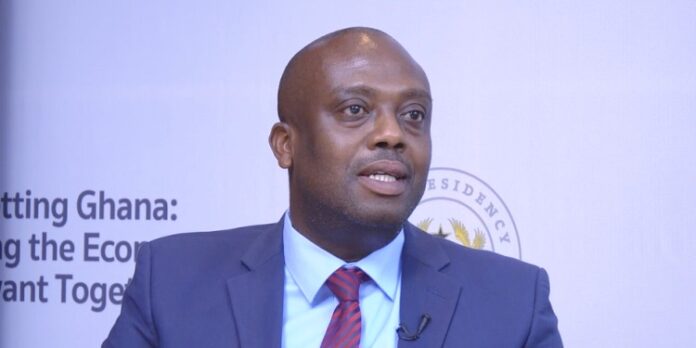Deputy Finance Minister Thomas Ampem Nyarko Reaffirms Government’s Commitment to Fiscal Discipline and Independent Economic Progress
Deputy Finance Minister Thomas Ampem Nyarko has emphatically reaffirmed the government’s resolve to maintain fiscal discipline and steer Ghana’s economy independently, stating that the country is fully capable of continuing its progress without further reliance on an IMF programme.
Speaking on Joy FM’s Super Morning Show during a discussion of President Mahama’s eight economic pillars, Mr. Nyarko underscored that the president’s policy framework is not only robust but also flexible enough to accommodate additional national priorities, including the critical issue of corruption.
“I want to assure everyone that the eight points President Mahama listed can be expanded to include corruption and other key concerns. We’ve made strong statements in the past about our commitment to fighting corruption. So, I do not believe that its omission here suggests the President is any less committed. He has made that clear — and he stands by it,” he said.
He added that President Mahama’s stance on Public Financial Management (PFM) serves as a direct signal of the administration’s broader intent to tackle corruption head-on.
“PFM, by its nature, speaks to our resolve to fight corruption. Yes, people expect the President to address everything, but if we tried to capture every issue, the list could easily grow to over a hundred points. What matters is that these pillars are expandable — they can evolve to reflect the concerns of our citizens,” he added.
Turning to the IMF programme, the deputy minister reminded listeners of the initial doubts surrounding the government’s ability to implement it effectively, especially in light of missed targets inherited from the previous administration.
“When we assumed office, there were serious concerns that we wouldn’t be able to deliver on the IMF programme. Major targets — including inflation and the primary balance — had been missed. But this government showed a clear and consistent commitment to implementation,” he stated.
Mr. Nyarko highlighted that structural benchmarks set for later in the year were actually achieved ahead of schedule.
“For example, the amendment to the Fiscal Responsibility Act was scheduled for completion by September 2025. We accomplished it in March through the budget we presented. Likewise, the fund streamlining expected by the end of June this year was also completed in March. These are not just milestones — they are proof of our seriousness in implementing the IMF programme and honouring the staff-level agreement.”
He expressed optimism that Ghana will secure the IMF Board’s approval at its June meeting and affirmed that the government remains fully committed to completing the programme as designed.
“We inherited this programme and we are committed to seeing it through. We believe we are doing exceptionally well. While some Ghanaians may worry that fiscal discipline and transparency only occur under IMF supervision, we have demonstrated that we are a disciplined government, with or without the IMF,” he revealed.
He further assured Ghanaians that the progress achieved under the programme will not be lost after an exit.
“We are committed to consolidating the gains we’ve made. It would be counterproductive to abandon our achievements only to risk derailing the economy after the programme ends,” he assured.
Mr. Nyarko made it clear that President Mahama intends to leave behind a strong economic legacy — one that resets the nation’s financial foundations and drives sustainable development.
“Let me allay everyone’s fears: if we complete the IMF programme and exit next year as scheduled, it does not mean a return to irresponsible economic management,” he said.
“It does not mean we will go back to an era where information is concealed from the public. We will not return to practices where debts are kept ‘below the line’ just to create artificial borrowing space. We will continue to manage the economy responsibly and ensure long-term debt sustainability,” he explained.
Mr. Nyarko directly addressed concerns raised by Professor Bokpin and other economic observers.
“We want to assure Professor Bokpin and all others with genuine concerns that exiting the IMF programme will not take us back into financial mismanagement. We are determined not to return to the IMF.”
“President Mahama has been consistent on this point — this must be the last time Ghana turns to the IMF. We can be disciplined on our own. And we will be,” he concluded.
Source :Kareen Tei



